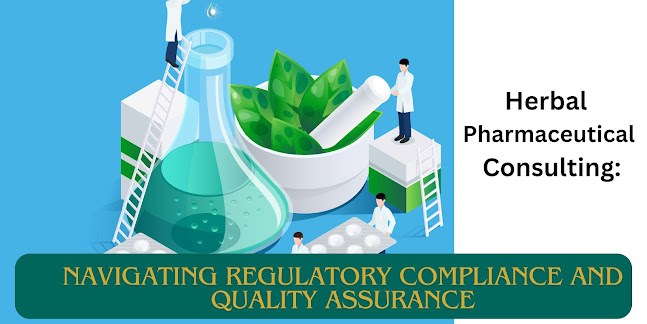In the realm of healthcare, the integration of herbal remedies with pharmaceutical standards has opened new avenues for holistic treatments. Herbal pharmaceutical consulting plays a pivotal role in ensuring that these natural remedies meet stringent regulatory requirements and uphold quality standards. As we delve into the intricacies of this field, understanding the significance of regulatory compliance and quality assurance becomes paramount.
Understanding Herbal Pharmaceutical Consulting
Herbal pharmaceutical consulting represents the convergence of traditional herbal knowledge with contemporary pharmaceutical practices. It encompasses a range of services aimed at ensuring that herbal products adhere to established regulations, maintain quality benchmarks, and meet efficacy and safety standards.
Regulatory Compliance: Navigating the Complex Landscape
1. Regulatory Frameworks and Challenges:
Navigating the regulatory landscape for herbal products involves comprehending diverse frameworks worldwide. Consultants assist in interpreting and complying with regulations set by various governing bodies, such as the FDA in the United States or the European Medicines Agency (EMA) in Europe.
2. Good Manufacturing Practices (GMP) for Herbal Products:
Ensuring adherence to GMP standards is crucial for maintaining the quality, purity, and consistency of herbal products. Consultants guide manufacturers in implementing these practices throughout the production process, from sourcing raw materials to packaging and distribution.
3. Safety and Efficacy Assessments:
Herbal pharma consultants conduct rigorous assessments to ascertain the safety and efficacy of herbal products. This includes evaluating botanical identity, assessing potential risks, and validating health claims through scientific studies and clinical trials.
Upholding Quality Assurance in Herbal Pharmaceuticals
1. Quality Control Measures:
Consultants devise and implement stringent quality control measures to guarantee the potency, purity, and authenticity of herbal products. This involves comprehensive testing, including chromatography and spectroscopy, to validate the presence of active compounds and the absence of contaminants.
2. Standardization and Batch Consistency:
Maintaining consistency across batches is imperative in herbal pharmaceuticals. Consultants facilitate standardization processes to ensure that each batch of herbal products meets predefined quality parameters.
3. Documentation and Record-Keeping:
Efficient documentation is integral to compliance and quality assurance. Consultants assist in creating and maintaining detailed records of production processes, testing results, and quality control measures, ensuring transparency and traceability.
The Role of Herbal Pharmaceutical Consultants
Herbal pharmaceutical consultants serve as invaluable guides and advisors, leveraging their expertise to navigate the complexities of regulatory compliance and quality assurance. Their role extends beyond mere adherence to regulations; they champion the integration of traditional herbal wisdom with modern scientific rigor, fostering the development of safe, effective, and high-quality herbal products.
Conclusion: Pioneering the Future of Herbal Pharmaceuticals
In conclusion, herbal pharmaceutical consulting forms the bedrock for the successful integration of herbal remedies into modern healthcare. By meticulously navigating regulatory frameworks and upholding stringent quality standards, consultants pave the way for a future where herbal medicines are not only revered for their efficacy but also trusted for their safety and consistency.
In the ever-evolving landscape of healthcare, the collaboration between herbal pharmaceutical consultants, manufacturers, and regulatory bodies is instrumental in shaping a healthier world—one where the potent healing properties of nature align seamlessly with stringent pharmaceutical standards.

Comments
Post a Comment